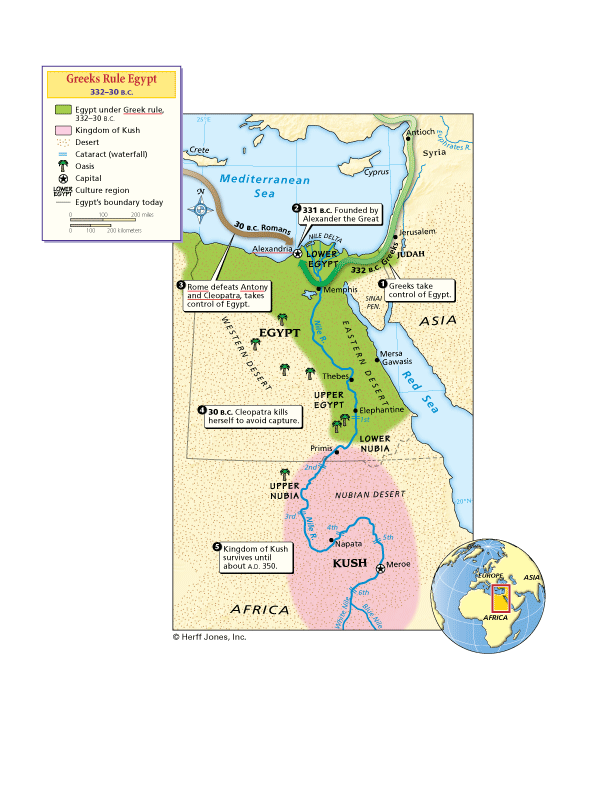
Alexander the Great conquered Egypt from the Persians in 332 B.C. His successor in Egypt was his general Ptolemy I, called Soter (Savior), who founded a dynasty of pharaohs called the Ptolemies. Both Alexander and Ptolemy were from Macedonia, a country neighboring Greece, and they adopted a modified style of Greek culture called Hellenistic (essentially "Greek-ish").
Alexander the Great rebuilt the Egyptian city of Rhacotis into a showcase of Hellenistic (Greek) culture named Alexandria, after himself. Ptolemy made Alexandria his capital. The Library and Museum ("house of the Muses," a center for philosophers, mathematicians, and scientists, not a museum in the modern sense) were the main center of learning in the Mediterranean world until well after the fall of Rome in A.D. 476.
Cleopatra VII Philopator ("beloved of her father," all Ptolemies used nicknames because all were named Ptolemy for boys and Cleopatra for girls) was the last free ruler of Egypt until the Muslim era. She was able to maintain friendship with the dominant power, Rome, in part through her personal relationships with two leading politicians, Julius Caesar and Marcus Antonius (Mark Anthony). She and Anthony led the losing side of the last civil war of the Roman Republic. They committed suicide rather than be captured by Octavian, later called Augustus Caesar. Octavian assumed direct control over Egypt as a province of Rome.